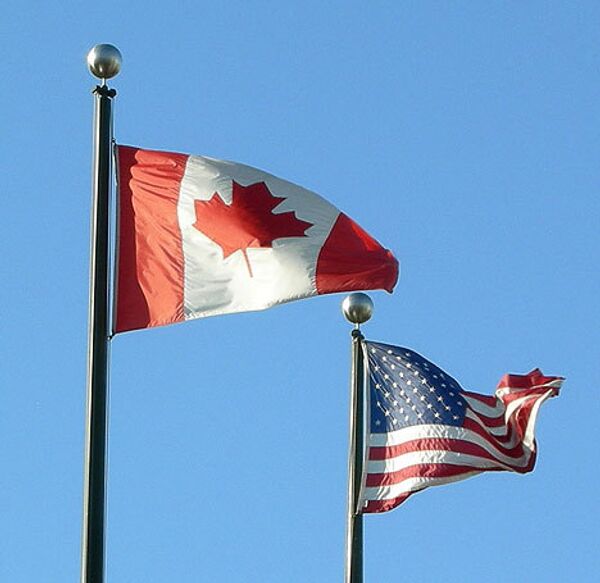WASHINGTON, July 23 (RIA Novosti) - The United States and Canada will begin in August a 42-day joint expedition to the Arctic to survey the continental shelf in the Arctic, the U.S. State Department has announced.
Hydrocarbon deposits and other natural resources under the Arctic Ocean, made increasingly accessible by new technology and climate change, have made the extent of the continental shelf a matter of national interest as countries vie for sovereignty over the seabed.
"The mission, scheduled from August 6 to September 16, will continue the collaboration in extended continental shelf data collection in the Arctic started during last summer's joint survey, with plans for further cooperation in 2010," the State Department said on Wednesday.
The second U. S.-Canadian Arctic expedition will involve the U.S. Coast Guard Cutter Healy and the Canadian coast defense ship Louis S. St-Laurent.
Under international law, the five Arctic Circle countries - the U.S., Canada, Denmark, Norway and Russia - each have a 322-kilometer (200-mile) exclusive economic zone in the Arctic Ocean.
However, under the United Nations Convention on the Law of the Sea, if a country can show its continental shelf extends beyond the 200-mile limit, it can claim rights to more of the ocean floor.
The question of conflicting territorial claims on the arctic seabed has become a point of dispute between the United States, Russia, Canada, Norway and Denmark, especially after Russia undertook two Arctic expeditions - to the Mendeleyev underwater chain in 2005 and to the Lomonosov ridge in the summer of 2007 - to support its territorial claims in the region.
A titanium Russian flag was planted on the seabed of the Arctic Ocean and researchers conducted deepwater seismic probes.
The expedition to the Lomonosov ridge irritated a number of Western countries, particularly Canada, whose foreign minister accused Moscow of making an unsubstantiated claim to the area.
The Arctic region is believed to contain vast oil and gas reserves and other mineral riches, likely to become accessible in future decades due to the global warming.
Russia first claimed the territory in 2001, but the UN demanded more evidence. Moscow has pledged to submit an official claim on the external boundaries of Russia's territorial shelf by 2013.


